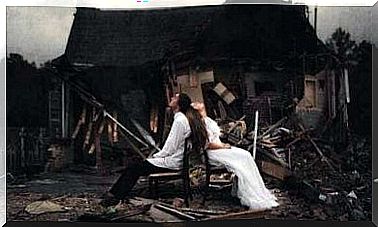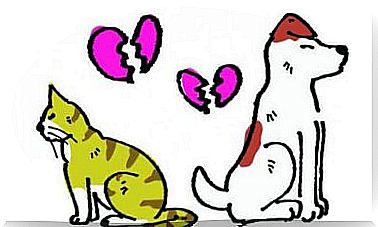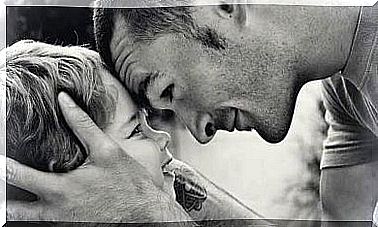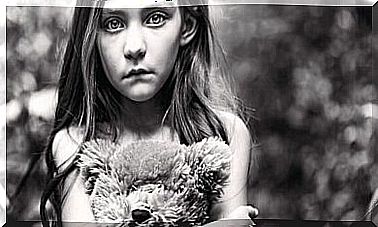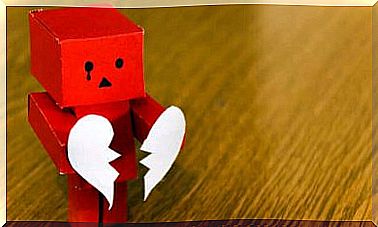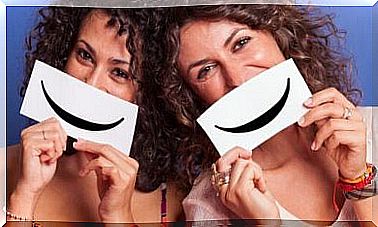In Love, There Are Those Who Use A Magnifying Glass When They Need A Mirror

In love, there are people who act like real snipers. One of their most common strategies is to use a magnifying glass to examine the other, to point out its flaws, mistakes and supposed weak spots, to the point of invalidating it. It is the paradigm of the coward, of the person who does not understand that in love, rather than a magnifying glass, we need a mirror.
In emotional relationships, no one can wave the flag of absolute wisdom. Most people surround their precipice of mistakes with a whole armada of dreams and hopes. They are then shipwrecked in the ocean of impossible loves and also in that of cowardly passions, those who have not dared to give everything out of fear or simple indecision.
“Behavior is a mirror in which everyone shows their image.”
-Goethe-
Now, there is one type of relationship that wreaks more havoc than any other, and that is one where one of the couple – sometimes even both – act as real life destroyers. identity. It is these profiles who focus their attention on anything that they don’t like or bothers them about their spouse in order to objectify, ridicule and control him. They do this because that’s how they take the reins, how they manage to make up their hurt self-esteem.
Almost without realizing it, we are caught in a hamster wheel where inertia drags us, dilutes us and catches us advitam eternam in a dangerous dynamic of unhappiness. A dynamic in which the one who holds the magnifying glass in his hand is unable to look at himself in the mirror to discover his bottomless pits, his abysses of immaturity.
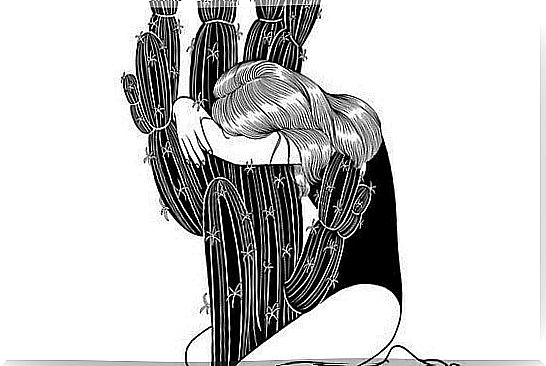
The complex survival of love: everything is the fault of the other
Howard Markman is Professor of Psychology at the University of Denver and one of the most well-known researchers in relationships. In the editorial world, there are a great number of his works which illustrate with precision and originality many of the emotional problems which take place in the framework of the banal and the everyday.
One of the most interesting ideas that Dr. Markman explains to us is that most people who go to couples therapy go there convinced that all the responsibility for their problems and unhappiness is with the spouse. Likewise, they maintain the belief that the therapist will succeed in “cleaning up” them or more concretely, in “curing” this erroneous behavior that the spouse has. What they often expect from the therapist is to prove them right and tug their partner’s ears for their bad behavior.
Now, behind a relationship problem, there is often no mental health problem, but rather relationship dynamics. A dynamic that the two people have built and installed.
For Dr. Howard Markman, the complaints that arise in consultation in connection with the couple are often also linked to specific deficiencies in emotional education and psychological competence. Thus, what he proposes is to introduce very early on a specific subject called “psycho-education” in schools.
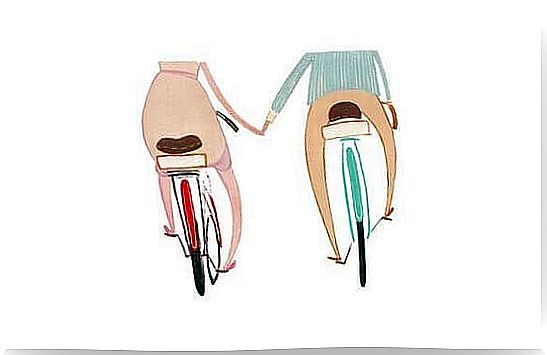
The purpose of psycho-education would be to provide us with strategies, tools and skills to be able to help ourselves. It would therefore be about learning to stand in front of a mirror to identify your own fears, insecurities, and no less important, to demolish all those rigid roles and gender patterns that society imposes on us.
We cannot forget, for example, that in terms of love, there are those who let themselves be carried away by pre-fabricated patterns, even inherited from their own families, in which “It is better to be silent and endure a little more ” or even “ If they do this or that, it means that they don’t like me, so I get angry and I force myself to control everything. ”
It is, in essence, to establish the bases of a good human quality and self-knowledge to take care of oneself and thus bring our best version and strength to couple relationships.
Love doesn’t heal if we don’t love each other
In this rich, complex and ever-growing fabric that forms emotional relationships, there is always a small reservoir for conflict. Instead of seeing them as something negative – like the virus that can give rise to disease – we have to accept them as a motor that will allow us to get to know each other better to create a much stronger bond, a more resilient tissue.
“Love prompts us to have faith in others and the same respect we have for ourselves.”
-Mahatma Gandhi-
Conflicts set in motion the most sensitive fibers of our being, we know this, but often we do it by using the magnifying glass of the supposed faults of the other in an almost obsessive, delusional way. We do this without being aware of our “quota” of emotional responsibility, without realizing that sometimes we are so cold in this world that we are looking for a person who is our suit, a refuge without cracks, a capable second skin. to heal any injury.

However, be aware that this formula never works. Because whoever also acts as a “giver”, who feels useful only when he is in need, is anchored in a dependent relationship, attached to that hamster wheel that we spoke of at the beginning, where there is lack of breath, life and dignity. . Because whoever is there only to offer will always live under this demanding magnifying glass which seeks absolute perfection to nourish voids and the needs of others… And worse still, he will never feel satisfied.
Let’s not allow it, let’s all put ourselves in front of the mirror to find ourselves with ourselves and with our self-esteem. Let us not allow ourselves to be drawn into this territory where the condition of being loved is its own misfortune.
Also read:

